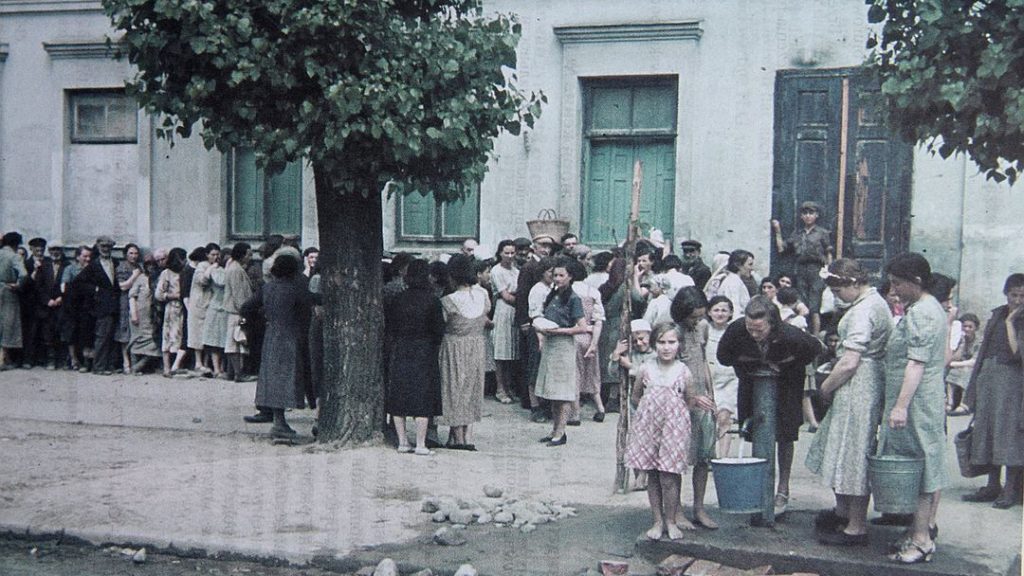Brest Stories Guide
In 2016, the theater “Kryly Khalopa” began the project Brest Stories Guide – a series of documentary audio performances in the city space.
There is a significant layer of history, poorly represented in school textbooks, Belarusian museums and tourist routes. German genocide against Jewish communities is one of the topics traditionally closed in the Soviet Union. The murdered Soviet Jews were stereotypically called just “peaceful civilians”. After the USSR collapsed, the single studies on the Holocaust appeared, but so far the people of Belarus have been little aware of the fate of their fellow citizens and the scale of this crime in Belarus.
The focus of the project Brest Stories Guide is anti-Semitism and the destruction of Brest Jewish community in 1941-1942. Before the outbreak of the war, there lived approximately 24 000 Jews in Brest (about 45% of the city population). Almost all these people perished. Because of the Holocaust and the city natives’ repatriation, as well as Soviet anti-Semitism, the memory of the Jewish community and its contribution to the development of Brest disappeared from the city. Today we can say that the biggest catastrophe and trauma of the city life are not present in its memory.
With the project Brest Stories Guide, our theater states that the Holocaust theme concerns not only Jews and the past but also the problem of people excluding in the modern world. The one, who remains indifferent to these events, will remain indifferent to the new crimes that allegedly “concern only others”.
An audioplay – a tour around a “nonexistent” Brest – is based on materials from the archives, books, photos, interviews with witnesses of the events related to the anti-Semitic manifestations since 1937, the Brest ghetto and the obliteration of the Jewish community in 1941-1942. In addition to the memories of surviving Jews and Brest citizens, there also were used the unpublished reports of German officers from the archives. The play becomes a kind of investigation with the hearing of witnesses in the case of anti-Semitism and the Holocaust in Brest in the 1930s and 1940s. Now Brest has a history told not by the authors of textbooks and the creators of heroic narratives, but by its inhabitants.
The mobile application – Android-based software – consists of the audioplay and a city map which allow the user to navigate freely on the map with key places of Jewish heritage and historical events. Streets, buildings and yards become a stage on which the voices from the past sound. The “Kryly Khalopa” theatre offers the viewer / listener to plunge into the history, and also see the outlines of a disappeared, old Brest appearing through the face of today’s city.
The application and the audioplay can be downloaded at www.breststories.com. Here, the user can get full information about the project and access to the map with the data about the Jewish heritage of Brest.
Brest Stories Guide is a project at the intersection of art, tourism and cultural heritage preservation, the result of the co-work of about twenty people, including historians, the experts from Jewish organizations, as well as the best actors of Brest theaters. That makes the project both an innovative tourist and art product, and a reliable source for studying the city history.
Historian Christian Ganzer: “The “Kryly Khalopa” theatre does what historians, museum workers, teachers, journalists and publicists should do, looking for places in the city and the stories related to Brest Jewish community, discrimination and the obliteration of this part of the urban population – with a goal to preserve the memory of the people killed and make this important part of Brest’s history available to all. The project Brest Stories Guide enables Brest citizens and tourists to get acquainted with the forgotten history of the city, listening to the words of witnesses, victims and participants of a mass crime, which has had no analogues in the history of the city.
Voices from the past invite the contemporaries to think about the culture of memory (in fact, the slogan “Nobody is forgotten, nothing is forgotten” is still popular, which obviously does not correspond to the reality), and about our attitude towards the discrimination and exclusion of certain groups of people from the society. Therefore, I believe that the Brest Stories Guide is a project connected not only with historical memory, education and art, but also with important ethical issues”.
Project presentation – May 27, 2017

